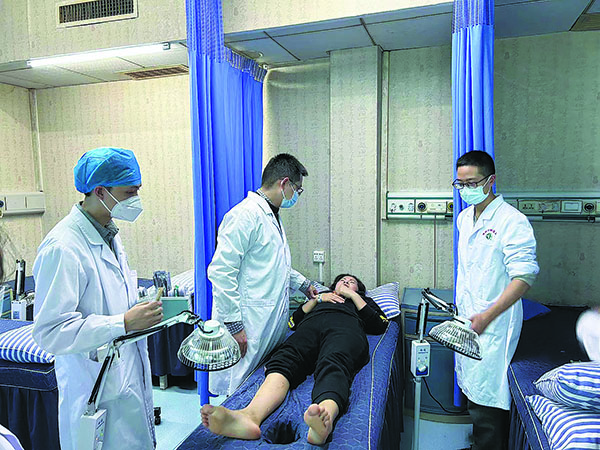Pinpointing growth of TCM culture


'Made in China'
Yang says that TCM proudly bears the label of "Made in China".
"Its strength lies in preventing and treating illnesses and chronic diseases in their early stages, with clear effectiveness. Techniques like acupuncture, moxibustion, tuina and cupping are simple, accessible, and bring significant socioeconomic value," he explains.
As a deputy to the 14th National People's Congress last year, Yang advocated for the promotion of TCM culture and advancement of the TCM industry.
He emphasized the importance of improving TCM training and fostering high-quality development, while also highlighting the need to promote Chinese traditional culture, with TCM at its core.
To spread and promote TCM culture, Yang believes in a multipronged approach.
He suggests increasing the introduction of traditional culture and TCM culture during compulsory education. This could be done through mediums like picture books and animations in primary and middle school classrooms, he says.
He also emphasizes the importance of educating university TCM students. Yang proposes adding mandatory courses on classic texts like those of Zhuangzi, and Laozi (Lao Tzu), alongside elective courses covering topics such as folklore, traditional opera, and arts like calligraphy and Chinese painting.
"TCM practitioners must not only learn the technical aspects of the practice, but also inherit the cultural essence of TCM," Yang says.
According to Yang, passing down and advancing TCM culture requires a fresh and innovative approach to spread awareness.
He suggests leveraging new media platforms like the internet and social media, and forming TCM cultural promotion teams led by national authorities to create engaging and informative videos, educating people about TCM through entertaining content.
"For example, we could provide reliable information based around topics like the 24 solar terms and offer related health tips," he suggests.
At the local level, Yang recommends organizing TCM cultural events and health education programs through community platforms like health centers and neighborhood communities. This would help increase grassroots understanding of TCM culture and encourage both tradition and innovation, he says.
"For instance, in workplaces where neck-related issues are common, educating employees about neck care, such as using ergonomic chairs or practicing specific exercises, can prevent health problems and reduce the burden on healthcare," Yang explains.
Over the past year, Yang has been busy visiting grassroots communities, gathering public opinion and participating in various activities promoting TCM culture. He's been involved in training sessions for TCM clinical techniques, spreading TCM culture in schools, communities and corporate environments, and giving interviews to promote TCM on social media platforms like Healthy Guizhou.
"Being a part of the National People's Congress has broadened my horizons and improved my ability to identify and tackle issues," Yang says.
"I feel a strong sense of responsibility as a deputy. My proposals for this year's two sessions focus on TCM culture inheritance and improving grassroots medical services," he says.
His proposals also cover topics like county-level medical consortia, TCM service pricing, and acupuncture clinic development.
"I aim to be a compassionate and insightful deputy," Yang says.





































